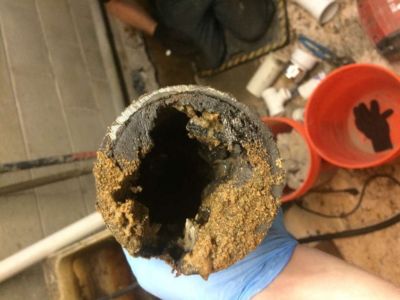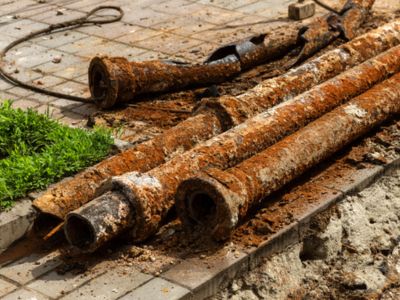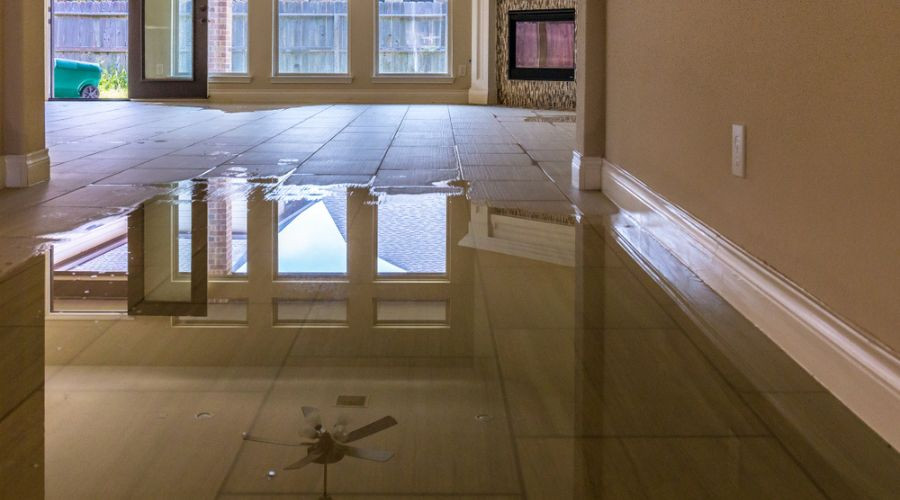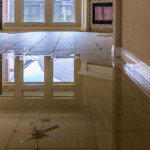Help Prevent These Plumbing Problems to Avoid a Burst Pipe
A burst pipe is the last plumbing issue any homeowner wants to deal with, as it can lead to a spike in water bills and costly water damage. However, there are some things homeowners can do to help prevent them. By preventing the common causes of burst pipes, like clogs, frozen pipes, and corrosion, homeowners can help avoid a burst pipe.
Clogs and Obstructions
 Clogs can lead to burst pipes when too much pressure builds up inside the system. Imagine that a blockage in the line impedes water flow. With time, the force of the water building up against the clog could cause the pipe to burst.
Clogs can lead to burst pipes when too much pressure builds up inside the system. Imagine that a blockage in the line impedes water flow. With time, the force of the water building up against the clog could cause the pipe to burst.
Homeowners don’t have to accept clogs and obstructions as inevitable. They can prevent them by:
- Scheduling regular drain cleaning services: During drain cleaning, a plumber relies on drain snakes, hydro jet drain cleaning, and other tools to clear clogs and clean the lines to prevent future ones. They can also advise homeowners on house-specific recommendations that could prevent clogs.
- Getting drain mesh screens: People can prevent food, hair, and other debris from going down the home’s drains and causing obstructions by covering drains with mesh drain screens.
- Be careful what goes into the drains: Homeowners should be aware that only toilet paper should be flushed down toilets to prevent clogs. Additionally, most food waste should not go down the kitchen sink’s drain, even one with a garbage disposal.
Frozen Pipes
Frozen pipes can also cause burst pipes because water expands when it freezes. So, if there’s water inside a line, and it freezes, it’ll expand until the pressure becomes too great, and the pipe bursts. However, homeowners can avoid frozen pipes by insulating any exposed lines. This generally involves wrapping the exposed pipe with some kind of insulator, usually foam or rubber.
In addition to insulating their pipes, homeowners can prevent frozen pipes by:
- Letting water trickle from a pipe: It’s harder for running water to freeze than standing water. During freezing temperatures, one can let water drip from their kitchen sinks, showers, and other water-based fixtures––just a few drops every few minutes, nothing more.
- Keeping the heat on: Some homeowners may want to save money by turning the heat off when they’re not indoors. This may initially seem like a good idea, but if temperatures get too low, this could lead to frozen (and eventually burst) pipes.
- Insulating attics and crawl spaces: There are many pipes in attics and basements, which can sometimes lack insulation. A plumber may suggest insulating these areas if pipes risk freezing.
Corrosion
 Rust and corrosion can eat away at a metal pipe and cause it to decay, making it more likely to burst or leak. Routine maintenance can go a long way in preventing pipes from developing rust or corrosion. A plumber can spot it in its early stages and treat it. In addition to consulting a professional, one can avoid corrosion by:
Rust and corrosion can eat away at a metal pipe and cause it to decay, making it more likely to burst or leak. Routine maintenance can go a long way in preventing pipes from developing rust or corrosion. A plumber can spot it in its early stages and treat it. In addition to consulting a professional, one can avoid corrosion by:
- Steering clear of chemical drain cleaners: These substances claim to remove clogs. Yet, they contain corrosive chemicals that can rust pipes from the inside out.
- Applying a protective lining: A professional may use a spray or lining to prevent pipe corrosion.
About Jim Wagner Plumbing, Inc.
Jim Wagner Plumbing, Inc. is a plumbing, heating, and AC company serving Lombard and the surrounding areas. They offer upfront pricing, fast turnaround times, and honest advice and recommendations. Call them today for plumbing services in Lombard, IL.


























